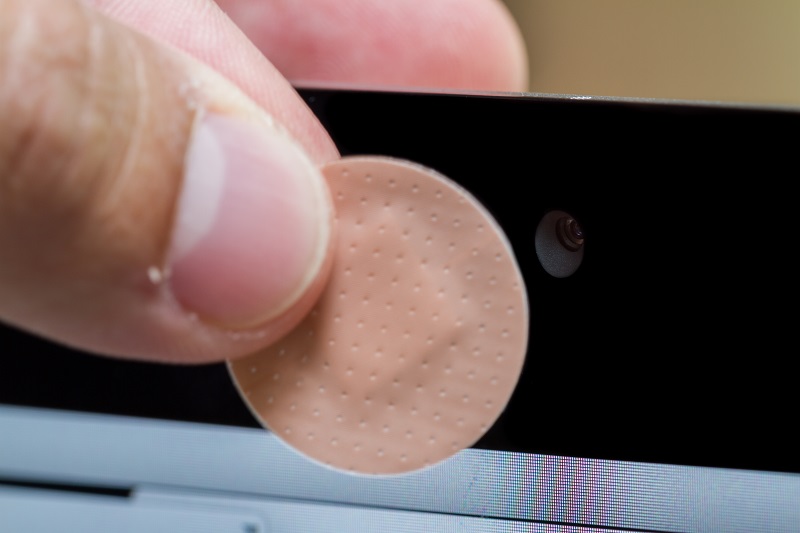A few weeks ago in Toronto, Chelsea Clark and her boyfriend we’re snuggling in their own home watching Netflix together on his laptop. This sounds very similar to what lots of people do to relax at home in the evening. What makes this story stand out is that someone was in the room with them.

Some people cover the webcam with a bandage to protect their privacy
Turns out that the next day when Clark looked at her Facebook page, she saw intimate images of herself and her boyfriend from the night before sent from an unknown person. The person, identified as Mahmoud Abdul in Cairo, Egypt, uploaded the pictures with a message that said “Really, cute couple [sic]”. The pictures were apparently taken from the laptop’s webcam.
This type of story is not new. This past March, a young man turned himself into the FBI and was sentenced to 18 months in federal prison for the computer hacking of Miss Teen USA, Cassidy Wolf. He watched her through her computer’s webcam for months, and took intimate photos of her in her own bedroom. He then attempted to blackmail her, asking for money for not posting the videos and photos.
You may remember the stories we shared with you on this blog about baby monitors that were hacked in Ohio and in Texas. In both incidents, a hacker took control of the monitor and screamed obscenities and shouted abuse at the toddlers while they were sleeping.
These are stories that make your hair stand up on the back of your neck, especially when you think about the lengths we go to while securing our homes from intruders. We lock the doors and windows, we install burglar alarms and motion-sensitive lighting — all to keep bad guys out. But these days, it’s what we bring inside our house that makes us vulnerable.
How to protect yourself from webcam or CCTV hacks
- The best defense is to make sure that your computer is always up-to-date. Update your antivirus program to the latest version and keep your virus definitions current, update your browsers and plugins and patch your software, even well-known names like Adobe, Oracle, and Microsoft. Avast Software Updater can help you stay on top of all that.
- Make sure your router is protected. Avast Home Network Security checks your home network for security issues to help prevent attacks on your router or devices. This video explains,
- If you have an external camera, such as a CCTV device, then do what you can to understand how it works and what security measures are in place. This may include changing the default password and settings.
- Many people tape a piece of paper or stick a bandage over their camera when they’re not using it.
- As always, do not click on links in emails or other messages that are unexpected or come from strangers.
Follow Avast on Facebook, Twitter, YouTube, and Google+ where we keep you updated on cybersecurity news every day.
![]()